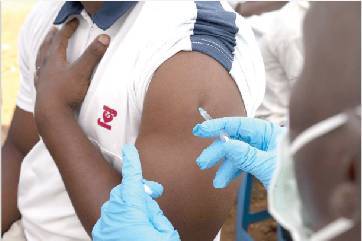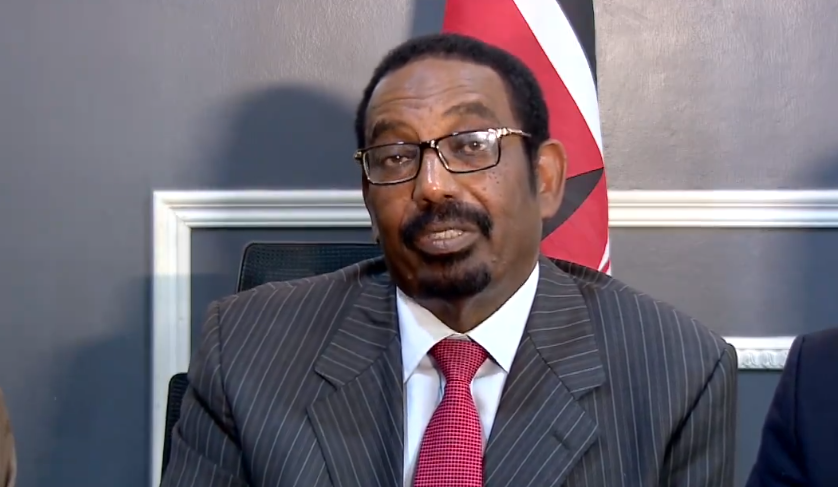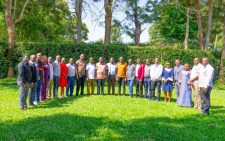Invisible bags kids could be carrying to school

Jasmine Atieno @sparkleMine
With the sudden phased reopening of schools and children set to resume normal class session, there is only so much to expect, and maybe, much to worry about.
According to experts, children may not have had a rigid routine back at home and with the short return to school notice, it would take time for their minds and bodies to stay focused and still within the school setup.
Also, it is partly due to their short attention span, which can be attributed to their long exposure to television and other gadgets that allowed them to fill their curiosity at the touch of a button.
As a result, teachers may need to up their game as there will be children who may challenge their teaching methods.
Remember that each child comes from a family that coped differently during the pandemic.
Access to technology, masks, recreational activities amongst other social amenities have shaped the children’s experiences that may show up in their self-esteem as well as their results in the assessment tests that are sure to be held in the coming days.
High alert
Counselling psychologist and child therapist, Faith Mutegi shares that teachers should be on the lookout and be able to identify when a child carries an invisible baggage back to school.
This follows the rise in child abuse cases, domestic violence, job losses and relatives getting sick, amongst many other issues that rose from the pandemic.
“Teachers should be on high alert for emotional outbursts as children have experienced sudden and life changing events that they may share or keep to themselves.
They have been operating on certain routines for an extended period of time and they have suddenly been sent to school. It’s hard to suddenly change habits in such a short period.
Also be on the lookout for behavioural challenges: children have learnt how to cope in the presence and absence of people in authority and they may cooperate or challenge these systems within the school environment.
They learnt to do things by themselves and may challenge or cooperate with the teachers’ teaching methods,” says Faith.
According to the psychologist who also runs a YouTube channel, Parenting Conundrums, there will equally be psychological scars.
Some children may have lost loved ones or certain comforts in life through the pandemic to various causes.
This may be due to overwhelming illnesses such as Covid-19, sudden death from other ailments or incidents, separation or divorce of their parents, moving homes such as urban-rural migration due to financial constraints, different forms of abuse, early sexual debut for both girls and boys, amongst other social ills.
The overall effects of the pandemic will take months and years to overcome.
Red flags
As a Beacon Teacher and a teacher at Utange Primary School, Mombasa, Elizabeth Kadzo Ziro is trained to detect, respond and report child abuse.
The Beacon Teachers Movement was started by Plan International together with the Teachers Service Commission to give teachers the opportunity to promote child protection in their schools and communities.
Part of her expertise involves observing any sign of abuse, stress or violent background of a child.
“One sign that there is a problem is an unkept child. That includes physical appearance that says there is something wrong.
Dirty, torn clothes, smelly, and children answering back like an adult. Other signs are; withdrawing from the other children, extreme fear towards any question, or anything, falling asleep in class, and being inactive.
Some cry for no reason. Others are rebellious and rude,” she says.
She shares, “In response, I ask questions such as; you don’t look happy, what’s up?
It’s time for break… you should be jumping and catching up with what you missed during Covid-19 stay home for all learners.
What’s up? Are you afraid of something…do you trust me? This makes it easier for the child to open up.
I encourage them to tell a friend or a person they trust or tell me as a Beacon Teacher.
Getting information from the child is crucial as well as a visit to their home.”
Reasons to Smile, a community based organisation in Shanzu, Mombasa, has been holding personal development sessions in Kilifi county, to help school going boys and girls open up regarding the abuse that is happening at home and following up to rescue the affected children.
“We do personal development and this is normally an opportunity for boys and girls to share their past experiences and how it is affecting their behaviours as at now.
That’s when many of them open up and share the painful moments they go through.
We call it a sharing session where the participants sit in a circle to signify privacy and anything discussed wouldn’t be shared outside the class.
Personal development helps in trauma healing because once shared, the child gets a sense of relief,” says founder of the organisation, Beata Mbula.















